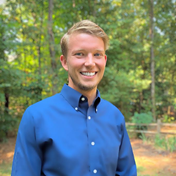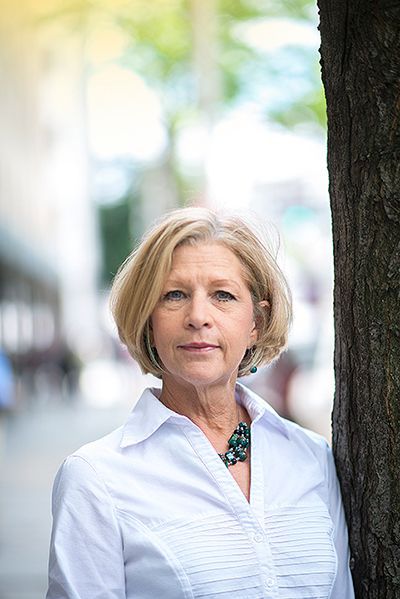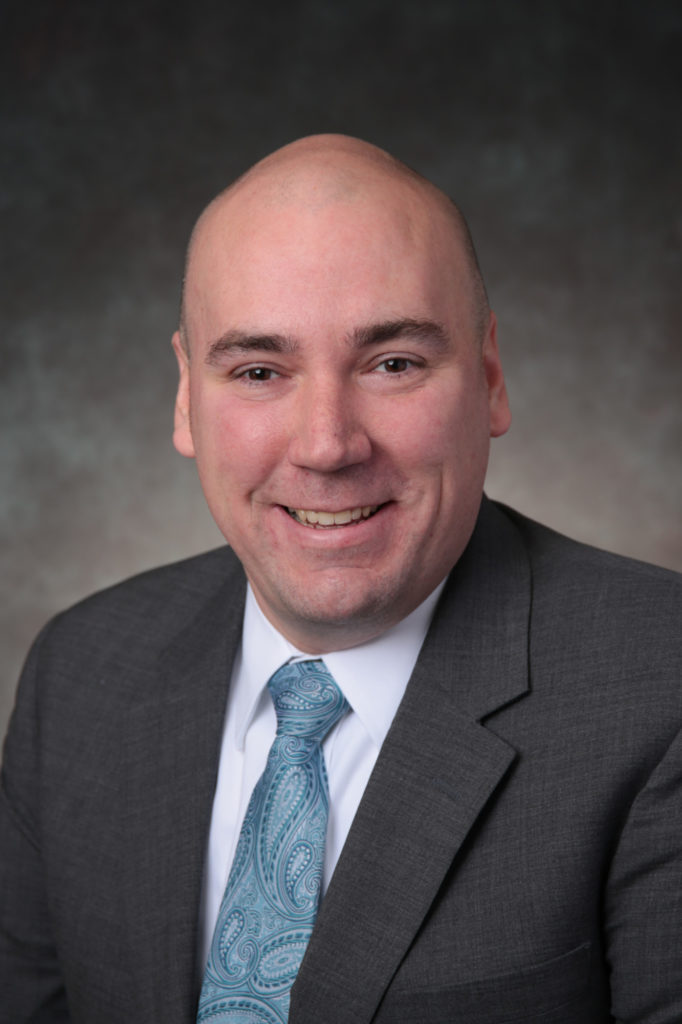Human Anatomical Gifts and Informed Consent: Three Perspectives
Table of Contents
Much interest is generated in the study of human anatomy during the first year of the Doctor of Physical Therapy (DPT) curriculum at Georgia State University. This year, students were considering opportunities to visit an anatomic exhibition displaying preserved human specimens to apply, analyze, and synthesize their newly-acquired knowledge. However, questions arose and conversations began among faculty and students regarding the acquisition of bodies prepared for public exhibit. Further inquiry identified that the enterprise responsible for the exhibit is from a country with less strict guidelines than the United States regarding the concept of informed consent for anatomical donation and has been alleged to have used executed prisoners or unclaimed bodies for their preserved exhibits. The United States abides by the Revised Uniform Anatomical Gift Act to regulate bodies donated to science; consent must be given by the person or their next of kin.1
The following questions arose during our discussions:
- Do other countries have such guidelines for acquiring bodies for anatomic exhibition?
- Is the sale of dead bodies a relatively common practice throughout the world?
- Is there a difference between body donation for education and body exhibition for entertainment?
- Are we bound by moral conflicts that may be inherent in the answers to these questions?
- How do we respond when confronted with these situations?
Conflicted by these reflections and our differing individual perspectives, a professor, a student, and an ethicist constructed an opportunity for open discussion. Anyone interested in the ethics and morality surrounding consent to donate anatomical gifts was invited to participate. The ethicist acted as an expert to facilitate discussion and help us sort our thoughts. By involving someone trained in ethical discernment processes in a clinical setting, we hoped to facilitate open dialogue regarding participation in the proposed learning experience—providing the framework upon which to base a more informed, or at least a more thoughtful, decision.
Diverse Perspectives on Anatomical Donations
Following are three diverse perspectives captured from our facilitated discussions, authored by:
- Writer 1: A teacher who also serves as a human anatomy laboratory caretaker
- Writer 2: A DPT student
- Writer 3: A health-system ethicist specifically trained to address ethical issues in end-of-life and postmortem management
Perspective 1: Deon
I am a self-proclaimed “Anatomy Geek” who believes that all humans are purposefully and wonderfully made. I have been teaching and learning anatomy with gifted and dedicated graduate students in the healthcare profession for more than 20 years. I remain unceasingly awed by the “sameness and reliability” of human anatomy to function perfectly in harmony with physiology. I serve as the caretaker and steward of the Human Anatomy Laboratory where corporal remains are gifts, purposefully, consensually, and specifically donated for education. I believe in the sacredness of the laboratory as a resting place for those persons until their remains are reunited with their families. I also believe in a healthy dose of lively interaction among students and teachers during learning, often accompanied by query, laughter, and utterances of awe and wonder, to put students at ease. We endeavor at all times, however, to maintain an underlying deep respect for the deceased person.
I have always believed that human anatomical gifts should be freely and purposefully given, either prior to death or offered by close family members who share common goals with the donor. I struggle with whether it is ethically sound for human remains to be used if this has not occurred, particularly where monetary gain from their display occurs. I acknowledge that there may be situations where learning can be achieved and precious knowledge gained even in the absence of consent. Is this morally acceptable?
Up to now, I have imposed my Western values on a situation where they may not apply. Now, since our discussions, I am considering that belief structures may exist where the concept of consent either has no base in law or is dissociated from Western concepts of morality. However, for me, questions remain: What is “consent”? If I attend an exhibit where consent is not obtained, how far removed am I in my participation in this experience from the actual act of purposing these remains without that person’s consent? Does it matter? Does knowledge potentially gained through these displays outweigh my moral constructs relating to consent?
I am recognizing that my limited Western constructs may not apply universally to issues of consent regarding human remains and uses beyond death. I am appreciating that alternative value systems in other cultures may co-exist as well as conflict with my beliefs. I will challenge future students to carefully consider and thoughtfully examine their own feelings regarding concepts of consent in making anatomical gifts for education and science.
Perspective 2: Chase
I am a third-year graduate student in the DPT program at Georgia State University, where the curriculum offers two semesters of human gross anatomy lab with human cadaver donors. Captivated by this opportunity, I have come to greatly appreciate the gifts that were purposefully loaned to us. Over the past 18 months, I have become increasingly fascinated by the world of cadavers and the learning opportunities that follow. Immersion in the laboratory experience for eight months during my first year in the program provided opportunities that influenced me to believe that the human body is one of the most special and flawless creations known to mankind. I plan to continue my learning on our new cadavers and look forward to teaching a few fellow students along the way.
As a student in courses emphasizing APTA core values and social diversity, I have learned about ethics and values, and how they differ between cultures. I asked myself repeatedly why certain things matter to a person or group of people yet have zero impact on my life and belief structures. When we discussed the different regulations and ethical issues regarding body donation, I could not help but think that if my own deceased body could be used to benefit others, importance of consent should be immaterial, especially if it could save lives. My personal thoughts are that when I am gone from this world, odds are I’m not finding a way to use my body again, so instead of it wasting away in a pile of dirt, why not help others? Regarding use of bodies for art and entertainment purposes, my views waver and are not completely formed. Even though the remains are not for educational purposes, I may still be all right with that, since I’m not using them anymore.
Pertaining to this specific exhibit, I considered that executed prisoners and unclaimed bodies were on display, and I thought, “What if laws in the US allowed these bodies or the unclaimed John or Jane Doe to be used without active consent?” I am not going to judge moral right or wrong, but could this be a last effort to give back or receive forgiveness? Or maybe, could those “unknown souls” leave a final positive impact on this world instead of empty absence with no name or legacy? I am not convinced that there is a right or wrong answer to what is morally acceptable or ethical. Western values highly prioritize significance of informed consent when purposing the display of human remains, but this is not universally consistent.
Everyone has his/her own opinions and beliefs about the subject, and I can neither judge nor criticize someone whose beliefs are not my own. Even if there were a “correct” ethical answer, there is no way it’s universal, because we are a world of people with different ideas, beliefs, and definitions of what is and is not morally acceptable. There is one major idea which does seem to be fairly universal among most cultures: that is to respect one another. We grow up learning this concept and to follow the “golden rule.” Most religions and cultures teach some form of this rule, which means that respect for individuals is one thing we as humans believe to be morally compelling.
Before these discussions, my belief was that informed consent should always be applied, and bodies preserved for exhibition should only come from donors who have given consent. As a result of my reflections, I would now prefer that it be necessary for me to specifically request that I do not want my body to be donated for educational uses, and to “opt out” of donation. I see body donation as crucial to the education of future medical professionals, as well as a wonderful way to save lives. My views may change again as I grow older and (hopefully) wiser, but that is something the “future me” will have to consider. Will there ever be common ground and understanding where everyone agrees on this issue? Probably not, but maybe it will forever be a topic that people like me discuss over dinner and cocktails, much like sports, movies, and politics.
Perspective 3: Jason
I am the Assistant Vice President of Ethics, Advance Care Planning and Spiritual Health for the largest healthcare system in Georgia. In addition, I am an adjunct faculty member educating students who will become Physician Assistants. I often sit at the crossroads of conflict in medicine and see the effects of clinical medicine on patients, their bodies, and their families at the beginning, middle, and end of life.
Limited. This one word would sum up my experience in a human anatomy laboratory before now. However, through facilitation of this discussion, I find myself working with learners and teachers who daily live the ongoing experiences of the human anatomy laboratory. It is through their lived experiences that we process the value of human life and the gift that deceased individuals have made through the donation of their bodies to science.
Personally and professionally, I believe in authentic decision-making in healthcare; complex decisions like what should be done to and for us are the result of our values integrated into the practice of medicine. I believe that authenticity looks different for individual persons. I believe that we should ask tough questions, even if it means facing our inauthentic selves. Were these or any preserved human specimens the result of an authentic decision-making process for the person that was and still is? Does the benefit of the knowledge gained from the use of the parts matter? Does it matter more than the authentic process? Shouldn’t some good come from a potentially evil process? What does authenticity look like now for these individuals?
I led a conversation with an outstanding group of students, teachers, and professionals prior to their visit to an anatomic exhibition of preserved human specimens. Through this interaction I found that we have a lot to learn from each other. This is true from the individual student to the larger healthcare system in this country. Values guiding Catholic healthcare facilities, namely The Ethical and Religious Directives, teach that cooperation in an act can take many forms, and that only certain forms of cooperation may be morally impermissible. While this concept of “cooperation” normally applies only within Catholic healthcare facilities, the principle seems appropriate even in a secular setting (eg, university, academic medical center, or community healthcare). It is about the connectedness of the wrongdoing and the actions of the cooperator. From each other, we learn that values vary, but at our core, we share some fundamental concepts: respect for each other; the idea of authentic decision-making; the avoidance of unnecessary harm; and perhaps others. What our humanity requires is for us to have dialogues about the application of these concepts in order to come to resolutions and move forward.
Before this discussion, I had had very little conversation about preserved human specimens or consent to gift anatomical remains with students and teachers. My thoughts on this subject continue to develop, but the recent conversation has led me to think through the broader ethics needs for future healthcare professionals. From the bench side to actual patient encounters, providers desire and need continued ongoing conversations about the ethical pivot points in their decision-making. I believe that only through careful reflection can we come to resolutions of the moral challenges that face our healthcare providers and system. That is why I think it is always helpful to engage a trained ethics resource to facilitate dialogue, clarify values, and seek understanding. I am honored to have worked with this group and look forward to our continued conversations.
Conclusion
Three divergent perspectives from three different individuals were independently prepared for this reflection of personal beliefs on the topic of informed consent and anatomical gift donation. However, whether explicitly stated or tacitly implied, all three perspectives seemed to echo two common threads of agreement.
One common agreement was that this opportunity for open dialogue among a group of persons with differing backgrounds led to reflection and the molding of our individual opinions as presented above. Discussion is a valued process in education. It provides an irreplaceable pathway for refinement of personal belief structures as well as the foundation for an openness to the beliefs of others.
The second area of agreement was that all three reflections mirrored a very basic and valued belief in the importance of respect as an underlying value. Whether it was the respect for human dignity, respect for discussion, or respect for diverse opinions and cultures, that value was evident and offered an open pathway to understanding.
Ultimately, although our original questions evolved through the process and may not have been specifically answered, the discussion with a trained facilitator provided a framework through which we could process these complex issues, explore our values, and allow each person multiple opportunities to grow ethically.
References
1. Revised Uniform Anatomical Gift Act (2006). Retrieved from the Uniform Law Commission website. Available at: https://www.uniformlaws.org/committees/community-home?communitykey=015e18ad-4806-4dff-b011-8e1ebc0d1d0f&tab=groupdetails. Accessed [05/16/2018]
About the Author(s)

Chase Montague, PT, DPT
Chase Montague, PT, DPT is a 2019 graduate from Georgia State University’s Doctor of Physical Therapy program in Atlanta, GA. He earned his Bachelor of Science in Education with a degree in Exercise Science and a minor in Spanish from the University of Georgia. Aside from his career, he has a passion for sports, live music, and the great outdoors. He is excited to begin his career and enjoy the journey on which the world of physical therapy will take him.

Deon Lee Thompson, PhD, FAACVPR
Deon Lee Thompson, PhD, FAACVPR is trained as an exercise physiologist with degrees from Wake Forest University and the University of Southern Mississippi. She is a Clinical Associate Professor in the Department of Physical Therapy at Georgia State University, where she has taught human gross anatomy and mentored students since 1994. She also has clinical expertise as director of both inpatient and outpatient cardiopulmonary rehabilitation for over 15 years. Dr. Thompson uses her skills and expertise to encourage students to consider humanistic elements associated with the study of human anatomy, while preparing compassionate and respectful clinicians who remain passionate learners and critical thinkers, always with a sense of respect, wonder, and gratitude for their very special learning opportunities.

Jason Lesandrini, MA
Jason Lesandrini was appointed WellStar Assistant Vice President of Ethics, Advance Care Planning, and Spiritual Health in January 2015. In his current role, Jason provides leadership and resources to promote ethical behavior and decision-making aligned with the mission, vision, and values of the health system. He is focused on building capacity through ethical decision making and development of health system staff. Lesandrini received a Master of Arts in Philosophy from Georgia State University and a Bachelor of Arts in Philosophy from Michigan State University. He is completing his PhD in Health Care Ethics from Saint Louis University. In addition, he is a registered mediator and certified healthcare ethics consultant.
![]()
This work is licensed under a Creative Commons Attribution 4.0 International License.

